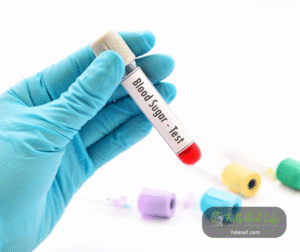Heavy metal toxicity is a growing concern in our modern world, and exposure to these toxins can lead to chronic health issues. Heavy metals are naturally occurring elements that are found in the environment, but human activities such as mining, manufacturing, and burning fossil fuels have led to increased levels of these toxins in our air, water, and food.
Common heavy metals that can be found in our environment include lead, mercury, cadmium, arsenic, aluminum, and nickel. Exposure to these heavy metals can occur through different sources, such as contaminated air, water, and soil, as well as through the use of consumer products, as well as found in foods. People who work in certain industries, such as mining and construction, are also at a higher risk of heavy metal exposure. Additionally, heavy metals can be passed from mother to child during pregnancy and breastfeeding.
Heavy metal toxicity can play a significant role in the development of chronic illness. Exposure to heavy metals, such as lead, mercury, and cadmium, can cause a wide range of symptoms, including fatigue, headaches, brain fog, digestive issues, and mood disorders. Over time, these heavy metals can accumulate in the body, leading to chronic inflammation, oxidative stress, and damage to vital organs and tissues. These toxins can damage cells, disrupt hormone balance, and impair the immune system, leading to chronic health issues such as autoimmune diseases, neurological disorders, such as Alzheimer’s disease, Parkinson’s disease, cardiovascular disease, and cancer.
Symptoms of heavy metal toxicity can be wide-ranging and may vary depending on the type and amount of heavy metal exposure. In addition to the commonly experienced symptoms of fatigue, headaches, joint pain, brain fog, and digestive issues, heavy metal toxicity can also manifest in other ways. Skin rashes, hair loss, and discolored nails can be signs of heavy metal exposure, while respiratory problems, such as coughing, wheezing, and shortness of breath, can be a result of inhaling heavy metals. Furthermore, heavy metal toxicity can also impact mental and emotional health, leading to anxiety, depression, and mood swings.
While it may be challenging to completely avoid heavy metal exposure, there are ways to reduce the risk and support the body’s natural detoxification pathways.
One way to support the body’s natural detoxification process is to promote healthy gut function, as the gut plays an important role in eliminating toxins from the body. This can be done by consuming probiotic-rich foods, such as fermented vegetables and kefir, and avoiding foods that are high in sugar and processed ingredients.
Additionally, it is very important to eat a healthy, whole-foods-based diet that is rich in nutrients and antioxidants. These nutrients can help the body eliminate toxins and protect against oxidative stress caused by heavy metal exposure.
Consuming certain foods can help the body detoxify heavy metals, such as cilantro, garlic, onions, and green leafy vegetables. It’s also important to stay hydrated and consume enough fiber to support the body’s natural elimination pathways.
Reducing heavy metal exposure can also involve making changes to your home and work environment, such as using natural cleaning products, ensuring proper ventilation, and wearing protective gear when working in industries with a high risk of heavy metal exposure.
Holistic approaches to detoxify the body and support natural detox pathways can also be beneficial in reducing heavy metal toxicity. These approaches can include specific supplements, herbs, homeopathic remedies and therapies that support the liver, kidneys, and other organs involved in detoxification.
Some general supplements and herbs that can support detoxification include glutathione, chlorella, cilantro, and milk thistle. Other therapies such as infrared sauna, lymphatic drainage, and colon hydrotherapy can also aid in detoxification.
It’s important to note that heavy metal detoxification should not be taken lightly, as it can be hard on the body and not everyone is ready for a heavy metal detoxification physically. Specialized detoxes, such as heavy metal detoxification, should only be done under the guidance of a qualified healthcare practitioner who can help assess your readiness for detoxification and monitor you closely throughout the process.
If you suspect you may be suffering from heavy metal toxicity, it’s crucial to get tested and seek guidance from a qualified practitioner before starting any detoxification process. By identifying the root cause of your issues and supporting your body’s natural detoxification pathways, you can begin to address underlying imbalances and improve your overall health and well-being.
If you need assistance with testing for heavy metal toxicity and preparing for a detoxification process, I am here to help. As a Board Certified Naturopath, I can guide you through the process and help you create an action plan that is tailored to your individual needs. Please feel free to schedule a free call with me if you have any questions or concerns. Remember, by taking control of your health and addressing underlying imbalances, you can begin to feel your best and live your life to the fullest.








